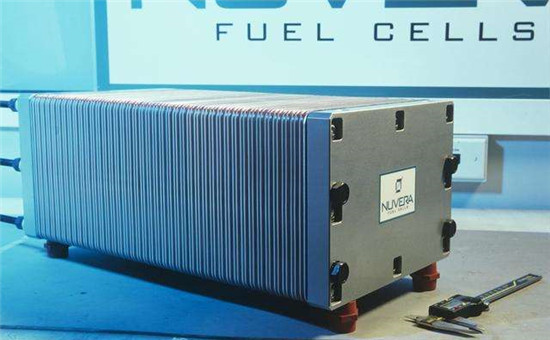Can you charge lithium batteries with a NiCD charger?
Nov 23, 2019 Pageview:1194
We are witnessing a new wave in battery technology across the world. And with them, an increase in battery powered vehicles and devices. Lithium and NiCD batteries are the best on the market in this regard.
An awesome battery can make your life quite easy, giving you full power to run your device for years.
However, without a good charger, chances are your battery will die out faster than you expect. Unfortunately, the biggest threat battery life span is how users charge them.
Without proper research, you may end up buying a bad charge. The good news is, there are a wide variety of alternatives for you to pick from. Continue reading to find out more.
What do I need to pay attention to during charging?
Amperage
Many users assume that all chargers are created equally. It is not true. When you think along this line, you may not be able to pay attention to the most important features of a good charger.
You don’t need to just charge your phone with the charger it came with. You can pick the right charger based on amperage (a measure of current). If you get it right, it may be the different between sitting down until your device is fully charged before unplugging and going on with your day while charging continues.
Check the amperage for the charger you are buying. Since, lithium batteries and NiCD batteries almost equal in power, you can or instance use a high amperage charge made for tablets to charge your phone.
Consider for instance charging Retina iPad mini. In this case, a lightening connector plugged in a computer via USB could offer great charging. Or, you can still connect to an iPhone charger connected to a wall socket and the results will still be fantastic.
Technically, a PC USB charger gives you not more than 5 watts of power. On the other hand, the Retina iPad mini charger delivers double this amount.
In a nut shell, the USB charger connected to your computer will charge the iPad four times slower. But the iPad charge will work faster on your iPhone. Note that, none of these chargers are going to affect your device.
Amperage means how fast or slow your charger will supply power to your devices. If you need your charger to charge faster, then keep our eye on this factor. Thus, the speed at which your device is charging has to be among the top things you should put in mind.
Temperature
Rising temperatures are a threat not only to the lifespan of your battery but to you as well. It is the reason number one batteries swell and even burst into flames.
Many experts advise you put your charging device of battery in a fire proof container. You can continue with other activities without any worry.
Unfortunately, lithium batteries are quite vulnerable to explosions. They may be the most advanced in battery chemistries, but this factor should be a serious point of concern.
Overheating is often a result of a bad charger or the environment. One must therefore ensure they are using the right charger in a cool and dry environment.
The type of charger
There are many types of chargers in the world today. There are those with computerized features and normal ones without anything special. Some chargers are meant to work for specific batteries. Though lithium batteries are not particularly sensitive to charge type, it is still important to check the settings.
Voltage
Batteries and battery pack are designed with specific voltages. There are three important measures voltage measures to consider:
· Nominal voltage. You can call this the safe voltage of your battery. It is neither high nor low and is used by manufacturers when comparing products.
· Full charge voltage. This is the parameter one need to be keen on during charging. It is a specified highest voltage your battery should achieve. Experts believe that charging beyond this voltage affects the ability of your battery to hold power (life span).
· Discharge voltage. This is the lowest your battery can go. It is important to note this because you will be putting your life at risk if you charge deeply discharged lithium battery.
Normal charging
The battery pack, especially for electric cars needs to be charged in a timely manner. For instance, a battery that has not been used for over two months should be fully charged before being used.
Besides this, consider the correct charging method: Connect the charger to the battery pack first, then to the power supply. Check the red light indicators showing normal charging and disconnect if you don’t see this.
Is there charger available for any batteries?
In most cases, chargers come with the devices. An iPad or a Smartphone will come with a designated charger.
At the same time, some chargers are designed specifically for a particular battery type. For example, you can get chargers made for lithium battery packs, which cannot be used for any other battery type.
The good news is, there are a wide variety of chargers in the market easily accessible through online channels. You can never miss getting the right one for your batteries. Even though most chargers can work with different batteries, it is better if you go for one made to specification.
Can you charge lithium batteries with a NiCD charger?
As discussed above, there is a charger for every battery type. Many users have asked whether they can user NiCD chargers for lithium batteries.
The simplest answer is, stay away from the charger! There are many examples on the internet where lithium batteries have caught fire and burnt houses down because of wrong charger use.
A NiCD charger is designed to push against 1.2-1.4V to charge the battery. On the other hand, you need a charger that shoves against 3.6-4.6V for lithium batteries. This means using a NiCD charger will only end up discharging your batteries.
Is summary:
· The charger won’t work
· It may destroy your lithium cell through deep discharging. In this case, recovering it will be a dangerous thing to do.
· If you must use it, ensure you have comprehensive house/property insurance. Otherwise,
Stay away!
- Prev Article: Materials Processing for Lithium Ion Batteries
- Next Article: Comparison of NiMh and Li-ion Batteries
Leave Message
Hottest Categories
-
Hottest Industry News
-
Latest Industry News











